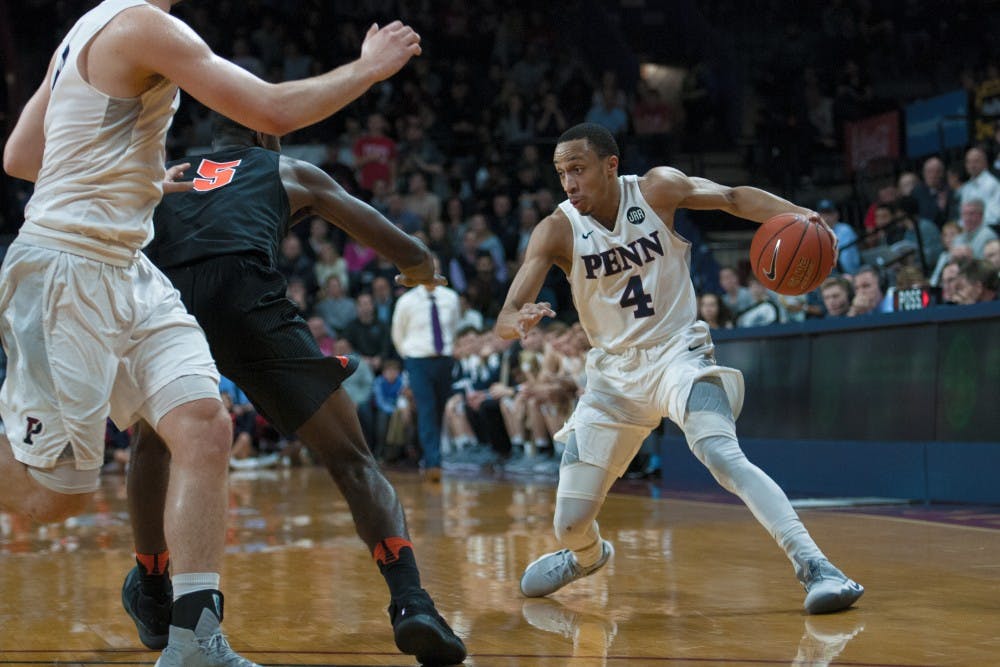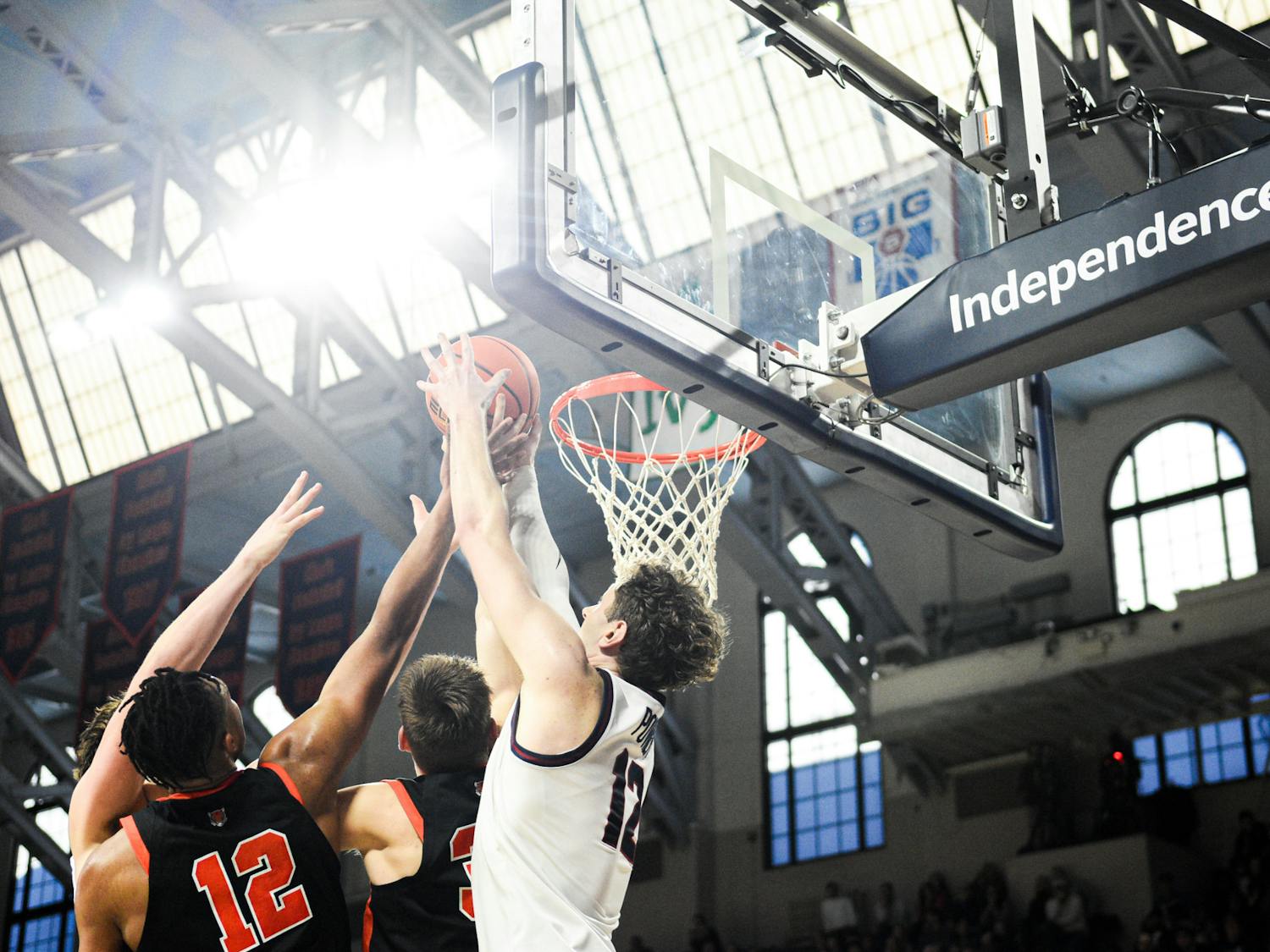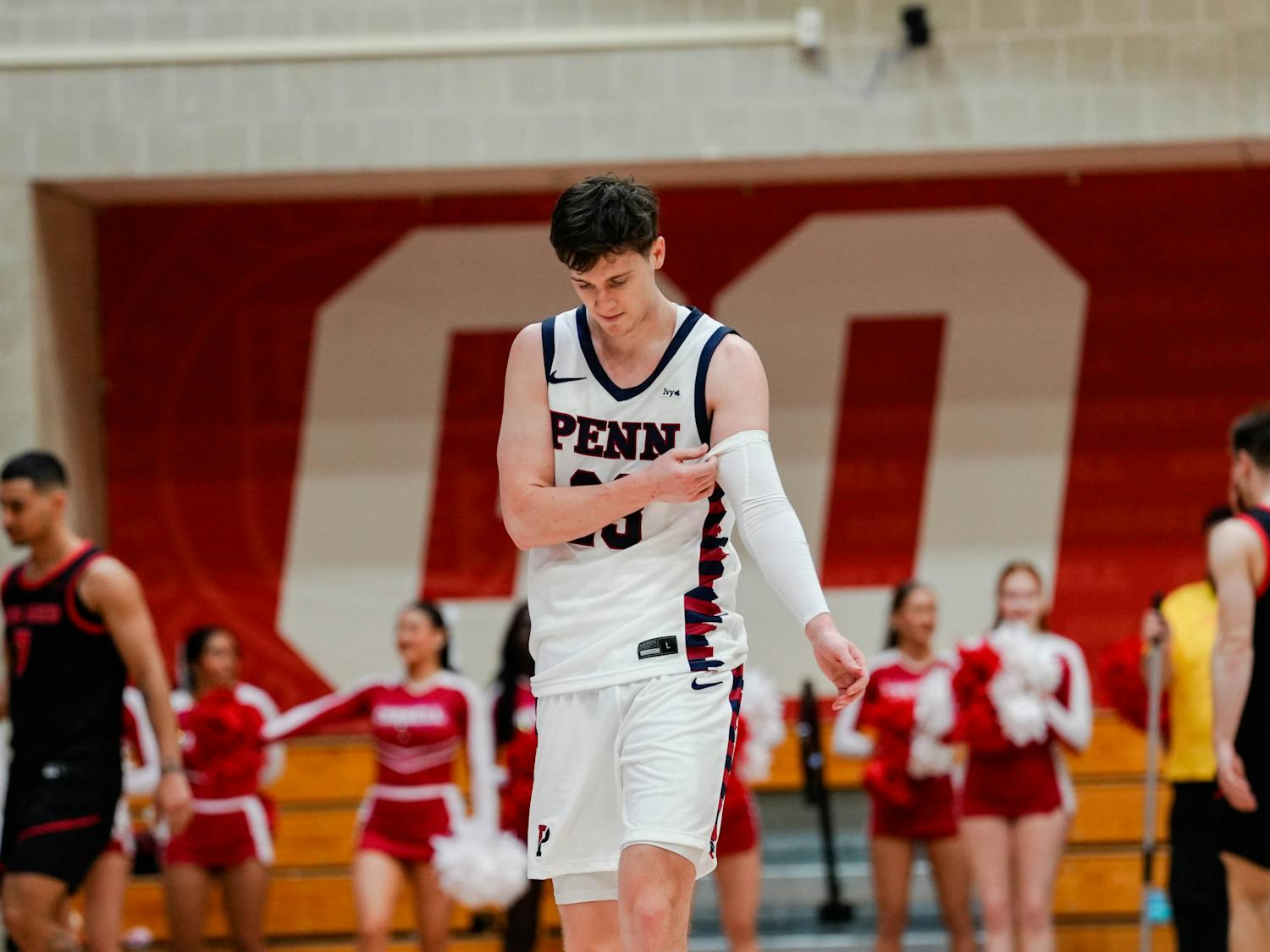If when it rains, it pours, then there was a monsoon at the Palestra on Tuesday night.
Penn men’s basketball fell to its archnemesis Princeton, 64-49, in a high-stakes rivalry match that kept the Quakers rooted to the bottom of the Ivy League and solidified the Tigers’ grip at the top.
Despite the packed crowd at the Palestra there to celebrate the Cathedral of College Basketball’s 90th birthday, there was no celebration for Penn (7-12, 0-6 Ivy) and its players’ hopes of topping their fiercest rivals (13-6, 6-0) in the first match between the two during the school year since 2012.
As with the first matchup between the two teams in January, the Tigers outshot their foe by a substantial margin. In particular, the visitors’ shooting from behind the arc was noteworthy.
When the two teams left the court for the half, it didn’t look pretty for the hosts. Down 39-27, the Quakers had fallen victim to a shooting spree rarely seen in the league — Princeton made 65 percent of its three-pointers in the first half to earn 27 points from deep, equal to Penn’s overall total.
“I thought we challenged a lot of those early ones [three-pointers] but they got some bounces, the ball started going in,” coach Steve Donahue said. “And it got contagious for them. They shot the heck out of it.”
The trend couldn’t continue. Shooting so efficiently was unsustainable; surely even Princeton coach Mitch Henderson knew that.
Yet the Tigers came out in the second half and kept on shooting from downtown. They didn’t keep up the mind-boggling efficiency of the first half, but they kept making enough baskets to extend their lead all the way out to 18 with ten minutes left.
The only way Penn could have competed down the stretch was to match them shot for shot, and Princeton did not make that possible. The home team didn’t lead at all the game since shortly after the first media timeout, which came with the Red and Blue up 8-5.
The Quakers couldn’t inject a high pace into their offense despite their hard work, largely because of the Tigers’ ability to lock down the game into a half-court system. Penn barely scored any points in transition all game long, a problem Donahue thought contributed to the loss.
“I think they did a good job of their awareness in transition... we didn’t really get any good looks in transition,” he said. ”[Their defense] takes more of the shot clock, and you need more time to execute. Their ability to guard you that long, and all five of their guys handling the ball well, making shots, I thought that was the difference in the game.”
At 0-6, Penn remains firmly rooted to the bottom of the Ivy League. Things haven’t gotten going for the Quakers in conference play, and with a young team, the opportunity stands now to go back to the drawing board and work on the fundamentals. In particular, Donahue singled out mentality as a key issue with his team.
“Mental toughness — Princeton has it. We’re trying to get it. That had a lot to do with this game.”
Tuesday was just the third in a stretch of five Ivy League games in nine days. All three have been losses, with two coming by double digits, and it’s hard to see them turning things around.
But Donahue remained adamant that their season isn’t over. Pointing to Harvard last year, he highlighted that the Crimson started out 1-5 and then 2-7 before heating up down the stretch to finish fourth. If his players could just get their first win, he thought, the monkey would be off their backs, and they could finally work towards finishing in the top four to make the inaugural Ivy League Tournament in March.
They’ll have to get to work right away — the next test is on Friday with a challenge from fourth-place Columbia at hand.









